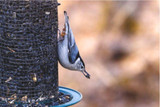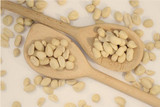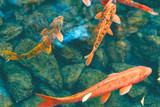How to make sure your bonfire is wildlife friendly

Wildlife friendly bonfires
Wildlife friendly bonfires. Bonfire Night is almost upon us, one of the most thrilling family fun events of the year. Once again we’ll all enjoy the tasty treacle toffee, the brilliantly blazing bonfire and the fierce firework fiestas, however, these celebrations come at a cost to our local wildlife. The sights and sounds that come with bonfire night can scare the likes of birds and hedgehogs, whereas the bonfire itself can be extremely harmful when situated close to their habitat. Not to worry though, as there are plenty of ways in which you can enjoy the festivities all whilst protecting wildlife on bonfire night.Create wildlife homes well away from the bonfire pit
This should be done as far in advance as possible during the run-up to bonfire night. From hedgehog homes to birdhouses and tables, try to position your wildlife welcomers far away from where you plan to have your bonfire. This will encourage them to venture into this area of your garden rather than the danger zone. Don’t forget the amphibians! - Frogs, newts and toads are often forgotten about when it comes to the wildlife world, however, they too can wander into the dangerous territory of your bonfire. Try to plot a few logs around your garden that will lure them away from the bonfire area.Build your wildlife friendly bonfire on the day
Hold back on building your bonfire until a few hours before the big event. If you prepare it too soon, you run the risk of wildlife wandering into it to explore. Build it as close to the event as possible, but be sure to double check there are no birds, hedgehogs or other species under the structure before lighting.Find a clearing
Look for a spot that’s well away from any trees or fences and also clear on the ground too. You can never be sure of what wildlife has made a home in leaves on the ground, so try to avoid these areas as much as possible.Add some chicken wire around the perimeter
Chicken wire will help to prevent wildlife from wandering into the bonfire area. Aim for around 1m high to maximise its effectiveness and keep the wildlife wanderers safe from harm.Focus the lighting on one side
When the time comes to light your bonfire, be sure to start the fire from just one side of the pit. This will allow wildlife to escape in case you haven’t noticed them sneak underneath. You will still end up with a fantastic bonfire as the flames spread across the structure, all whilst maximising the safety of your local wildlife.Have the hose to hand
You should always ensure there is a water source close by to your bonfire, in case of emergency. Not only will this help with protecting wildlife on bonfire night, it will also help to prevent any other dangers too.Aim your fireworks away from trees
Your feathered friends that nest and roost in amongst the trees around your house won’t be best pleased if they’re disturbed by bonfire night fireworks. Fireworks can wreak havoc with birds’ habitat, not to mention causing them harm too. If you’re planning on using fireworks, be sure to direct them as far away from surrounding trees as possible and into an open space. If you’re planning on using Catherine Wheels, try to find somewhere well away from trees and shrubs that you can pin them to.How to help hedgehogs in your garden
If you’re hoping to encourage more wildlife into your garden, there are plenty of simple things you can do to welcome them into your garden. For example, be sure to keep some logs and leaves aside, rather than using them all on your bonfire. They will help to create a fantastic place for hedgehogs to explore and make a home for hibernation.Stock up on food for your friends in the aftermath
No matter how safe you make the bonfire in your garden, there’s always the potential for your wildlife friends to be scared away as a result of the evening’s entertainment. By stocking up on plenty of wild bird food, gifts and treats for your other visitors, they’ll quickly come running back to your garden. Fill your cupboard with the likes of dried mealworms and suet pellets and fat balls.26th Oct 2017
Explore Popular Articles
-
How Sunflower Seeds Can Improve Your Bird's Health
14th Jun 2024Birds are quite attracted towards sunflower seeds, but have you ever wondered about sunflower seeds&
-
The Ultimate Guide to Feeding Peanuts to Birds: Benefits and Considerations
16th May 2024Feeding Peanuts to birds is a common practice due to their high nutritious value. Being an excellent
-
Signs of Overfeeding Fish: How to Spot and Prevent it
7th May 2024Do you know that fish are more likely to die from overfeeding than starvation? One of the mos




